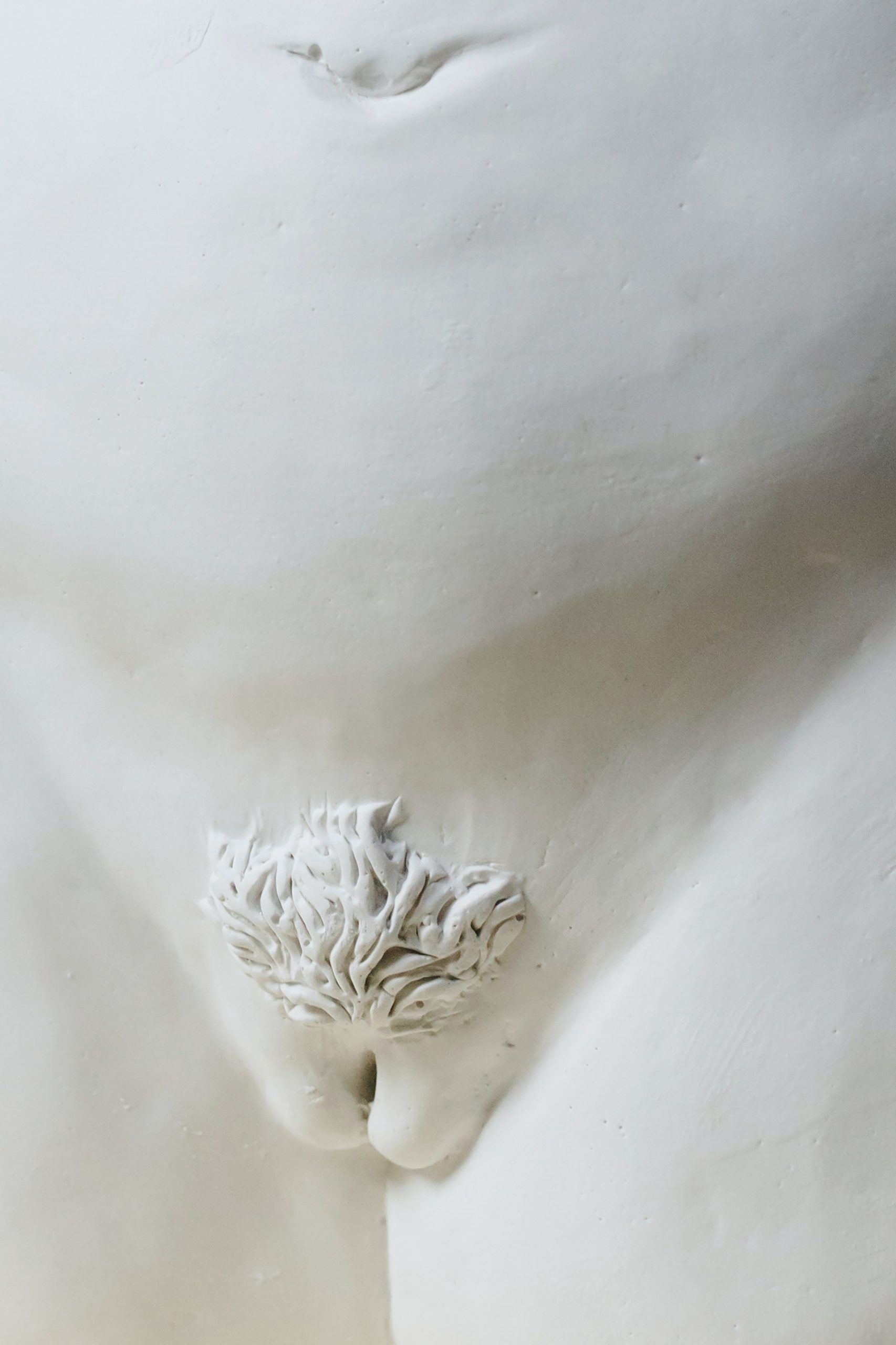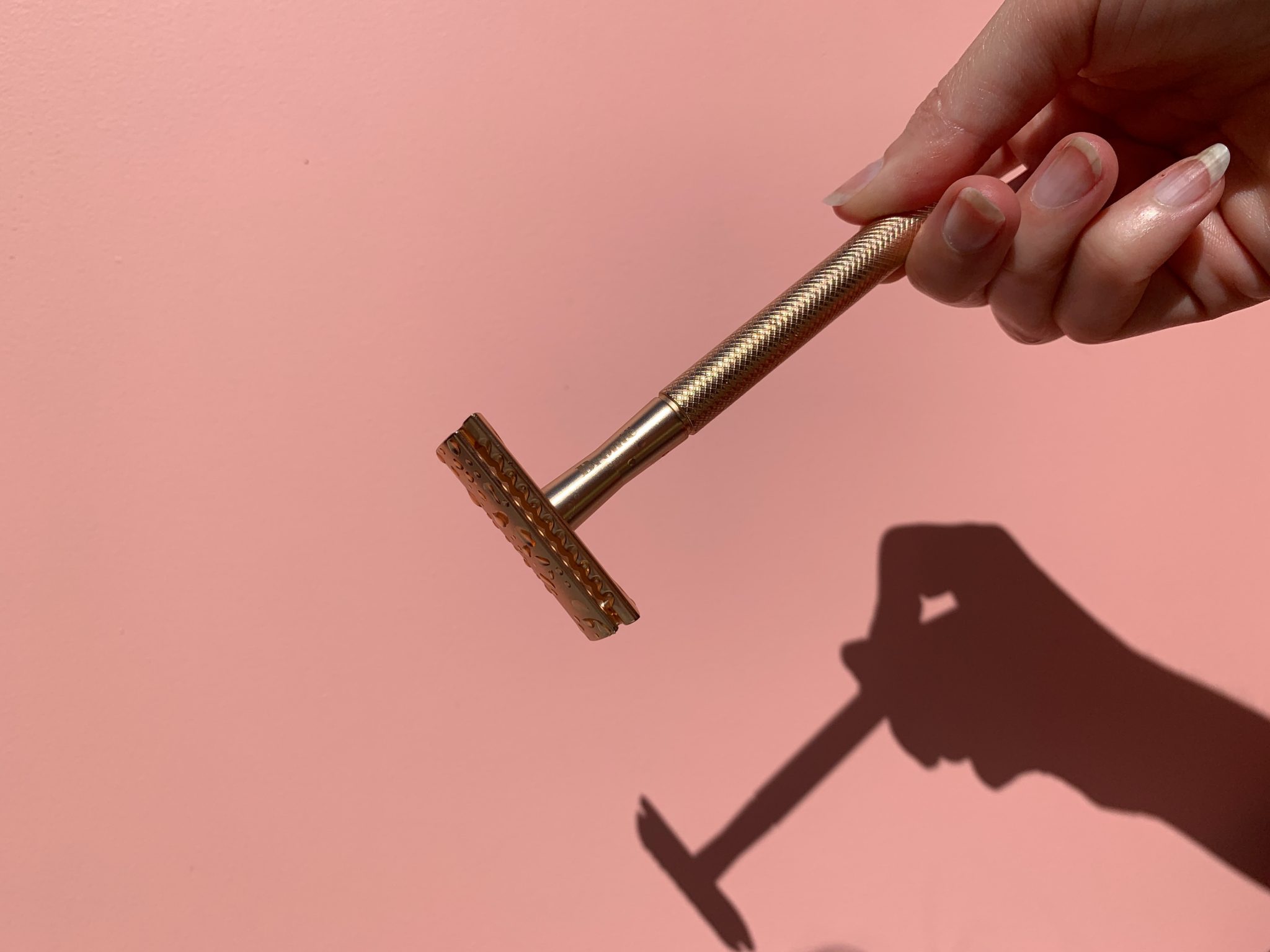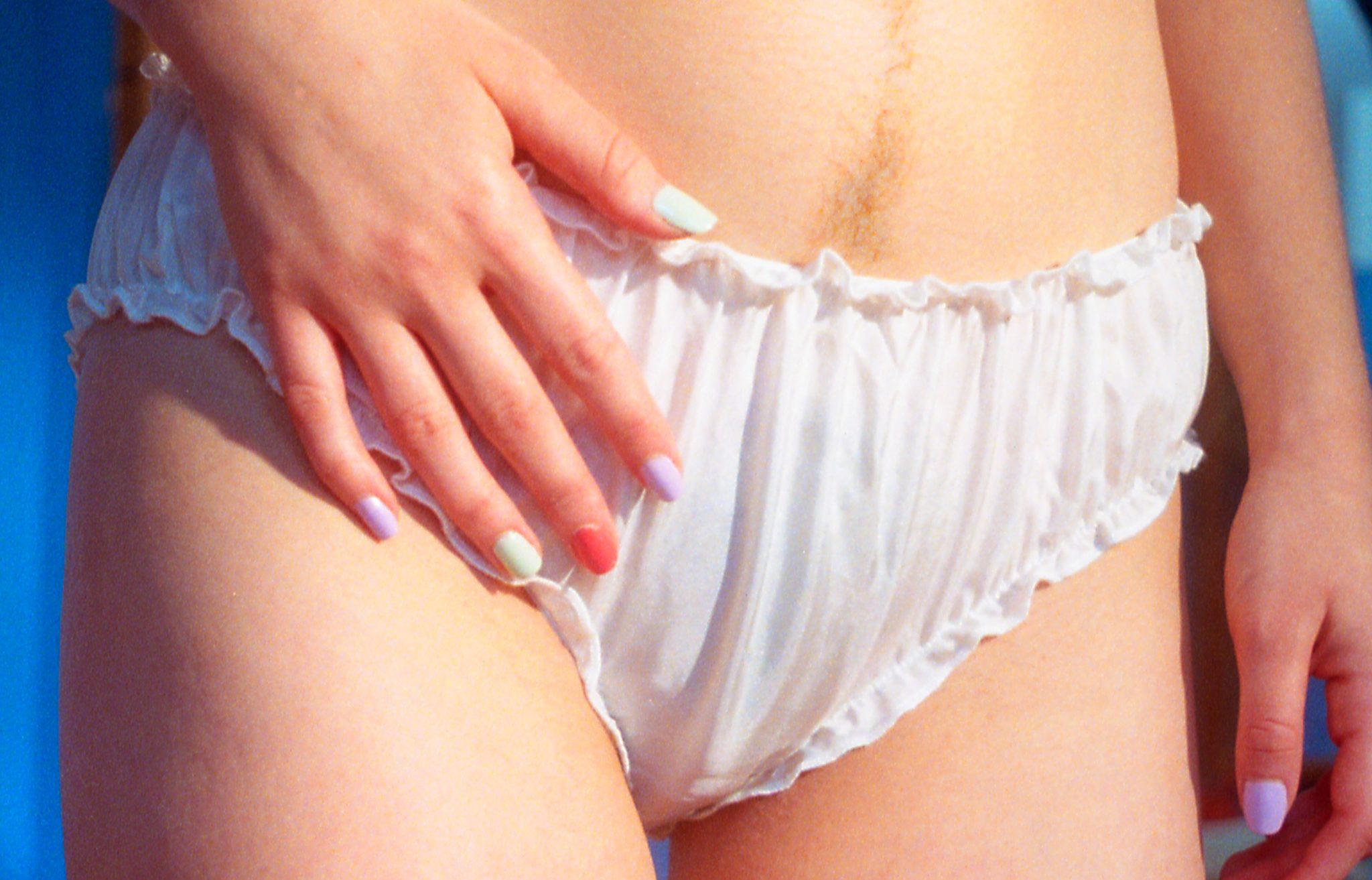
During puberty often one of the first signs of development is marked by growth of body hair, which occurs in both males and females. Specifically, pubic hair will begin to grow around the base of the penis in males and on the mons in females.6 Although this hair is perfectly natural as some people get older they may find that they wish to remove their pubic hair. For women, there have been cultural significance around vaginal grooming,with nicknames given to the different grooming styles, such as a “landing strip” or a “full bush.” In more recent years, men have also popularized their own pubic hair grooming in a practice called “manscaping.” Choosing to modify pubic hair is a completely personal choice, but if one does choose to undergo hair removal there are many methods. These methods vary in how permanent and costly they are.
- Cultural View on Pubic Hair
- What is the Purpose of Pubic Hair?
- Modification of Pubic Hair
- Removal/Modification Methods
- Methods Not Recommended for Pubic Hair Removal
- Concluding Remarks
Cultural View on Pubic Hair
Since the beginning of the 20th century, societal norms have caused a significant shift in the views toward pubic hair and pubic hair modification. In the early 1900s people rarely altered their pubic hair. This changed as the Women’s Movement began in the 1960s and as media sources like Playboy Magazine emerged. As revealing bathing suits and underwear were made popular women felt increasing pressure to have their pubic hair groomed or completely removed. Pubic hair has since become a topic of concern for many women, men, and even adolescents. The increasing popularity of oral sex has also sparked an increase of pubic hair grooming.
In general, attitudes toward pubic hair are similar to those regarding underarm hair: cultural and personal norms are reflected by reactions that range from disgust to admiration. Some people feel their pubic hair makes them feel more masculine or feminine, while others may view their pubic hair with contempt. Slang words for pubic hair include: pubes, bush, curlies, and carpet.
What is the Purpose of Pubic Hair?
The appearance and texture of pubic hair differs among all people. For some people pubic hair is thick and coarse, while for other individuals it may be sparse and/or very fine. The color of pubic hair also tends to vary. Pubic hair and armpit hair can even differ from the hair of the scalp. For most individuals the pubic hair is darker, but in some cases this is not true. For most women, the pubic hair patch is somewhat triangular with the top zone lying over the mons and extending down towards the anus; for most men, the pubic patch tapers upward to a line of hair pointing up towards the navel (commonly referred to as the “happy trail”).
There is no definite answer as to why human beings have pubic hair, but theories do exist. The prevailing hypothesis relates to pheromones which are the odors that the body produces which may be sexually stimulating to others.1 The hair that grows in both the genital area and under the armpits wicks away erotic scents that are then evaporated into the air and smelled by others. Another theory is that pubic hair prevents foreign particles from entering the vagina and prevents chafing, but because this explanation does not address male pubic hair, a third theory suggests that pubic hair serves to absorb odors of the genital region.
Modification of Pubic Hair
Trimming or removing pubic hair has become quite common in many cultures and there are many different types of removal. Removing the hair above the skin is referred to as depilation, whereas removing the entire hair follicle (including the root) is called epilation.
Reasons for why some people modify or remove their pubic hair include the following:
- Hygiene (especially during menstruation)
- Aesthetics (looks)
- Tradition
- Religious beliefs
- Sexual practices (i.e., oral sex, penile/vaginal sex, etc.)
- Comfort Preferences
Removal/Modification Methods
There are a wide variety of methods used to remove or alter pubic hair. The most common short-term method for reducing or removing pubic hair is shaving, while the most common long-term methods include waxing or laser-hair removal. Below are descriptions of the various methods for pubic hair modification.

1. Shaving
A razor (straight razor, safety razor, or electric razor) is used to cut the hair at the level of the skin or relatively close to it. Contrary to popular belief, shaving with a razor does not make hair grow back faster, thicker, or darker. Shaving with a razor creates a flat end to the hair, giving it more sharp edges than naturally pointed hair. Prior to shaving, it may be necessary to shave down lengthy hairs with an electric razor before using a regular razor. After doing this, it is recommended to first wet the area to be shaved and then apply shaving cream or hair conditioner. This acts as a barrier and a lubricant which can help prevent nicks (cuts), bumps, blisters, ingrown hairs, and general irritation. Shave in the direction of the hair growth (with the grain) to avoid ingrown hairs and irritation. Shaving “against the grain” of hair can cause issues such as nicks, bumps, blisters, and more. In order to get the closest and most hygienic shave, it is important to always use a fresh razor or razor head and to never use a razor that is rusted. Using a rusty or old razor can cause a staph infection because bacteria that remains on the razor can be transferred into a small cut.⁶ It is also best to rinse off any leftover hair and shaving cream after use and store it in dry place to prevent bacteria or fungal growth.
2. Bikini Waxing
Waxing is a procedure that involves pulling out sections of hair using various types of waxes. To perform a bikini wax, a licensed esthetician or cosmetologist applies warm wax to a female’s bikini line (inner thigh area), places cloth strips atop the wax, and then removes them by pulling the material off the skin. Oftentimes a small patch of hair is left above the vagina which is usually in the shape of a triangle. This method can be very painful, so pain-reducing gel is often recommended before applying the wax. It is possible that some skin irritation, bleeding, and inflammation of the hair follicles can occur as a result of removing the wax, so do not be alarmed if this occurs. Wax should not be put on skin that is chapped or sunburned or on the face of a person using facial products like Retin-A or Differin (these weaken the skin and could result in skin tearing when the wax is pulled off). If a licensed esthetician or cosmetologist performs the waxing bikini waxes typically cost between $25 and $50. It is important to find a salon that is clean in order to prevent the possibility of getting an infection or even an STI. A new pot of wax should be used with each new client and an applicator should only be dipped into the wax once and spread once over the skin. Although this should be done instinctively, it is a good idea to request safe practices such as these from your esthetician or cosmetologist at the beginning of the appointment.⁷
Do-it-yourself waxing products are an option which can be purchased and used in the comfort of your own home. Hair needs to be at least 1/8 inch long for waxing to be effective, so do not shave in the days or weeks leading up to your appointment. Results typically last 3-8 weeks.²
3. Brazilian Waxing
The “Brazilian wax” is similar to a bikini wax, but it involves complete removal of hair from the vulva (the external female genitals), perineum, anus, buttocks, and mons. This type of procedure typically uses a wax mixture made from natural beeswax, tall oil, and sometimes botanicals. This wax mixture is stronger and more effective at removing the thicker pubic hairs compared to the synthetic waxes frequently used for leg waxing. While the Brazilian wax has long been associated with women, there are a growing number of men getting the male equivalent of the Brazilian wax. The procedure is performed by licensed cosmetologists or estheticians at numerous spas and salons.³
The Origin of Brazilian Waxing
Though genital waxing has grown in popularity over the past 20 years the practice is not new. Waxing of the genital areas has been prevalent for centuries in Ancient Greece, Rome, Egypt, Arabia, Turkey and Persia. In the past, however, the waxes were sugar-based and made with lemon. The Brazilian wax specifically started on the beaches of Rio de Janeiro where many young women wear gossamer bikinis called fila dental (named after dental floss). The Brazilian wax was introduced to the United States in 1987 when seven Brazilian sisters, Jocely, Jonie, Joyce, Janea, Jussara, Juracy, and Julia Padilha, opened a hair removal salon called J. Sisters International Salon in Manhattan, New York.³
Typical Brazilian Waxing Procedure
- Women may or may not be provided with a paper G-string. The client will then be asked to disrobe from the waist down and lie down on a waxing table.
- Talcum powder is sometimes spread over the area to be waxed because it prevents the hot wax from sticking to the skin.
- Hot wax is applied with a thin wooden stick and given a short amount of time to harden. The wax strip is then pulled off in the opposite direction of hair growth (against the grain) with a cloth strip.
- This process is repeated until the hair on the vulva, mons, and/or perineum, and anus is removed depending on the client’s preference. The application and removal of the wax is done in sections as the cosmetologist works around the client’s body.
- Once the waxing is complete, tweezers are used to remove any remaining stray hairs that were not removed during the waxing.
- In some cases there will be a strip of pubic hair left on the mons veneris (often called a “landing strip”) which is trimmed or waxed depending on the client’s request. If the remaining hair is trimmed, it may be dyed or shaped into various patterns. If the remaining hair is removed, the procedure is called a full Brazilian wax or Hollywood wax.
Dyeing Pubic Hair
Men and women who want to take the risk of dyeing their pubic hair should avoid dyeing the hair covering the genitals and only dye the hair that covers the pubic bone (the mons). The dye can cause irritation if applied to the labia—both inner and outer lips of the vulva. For males, it is important to avoid the penile shaft and the scrotum because these zones tend to be sensitive. Many people experience irritation or allergic reactions, including burning of the vaginal area, itching, blisters, redness, or complete loss of hair. It is important to test for sensitivity first by doing a skin patch test 48 hours before attempting to tint hair.
The Results
The results of a Brazilian bikini wax typically last from three to six weeks, depending on the individual’s hair regrowth rate. Regrowth of pubic hair is generally minimal during the first two weeks and increases by the third. Heat stimulates hair growth, so regrowth may be quicker in the summer months. With regular waxing, hair regrowth will generally slow down, and the time between waxing sessions will increase.
Pain
It is normal to feel pain during a Brazilian or bikini wax; however, the severity of pain varies greatly among women. The most painful area to get waxed is usually the mons veneris (the area above the clitoris), whereas the least painful area is behind the genitals and around the anus. The best time to have your pubic hair waxed is a week after menstruation, because the genital area is least sensitive during this time. In contrast, the pain is likely to be greatest immediately before and during menstruation when the area is most tender. Typically, the first Brazilian wax is the most painful. The pain should gradually decrease in subsequent waxing sessions when the hair is thinner and easier to pull out.
4. Tweezing
Tweezing is a laborious method that involves plucking each individual pubic hair. There may be pain, skin irritation, and inflammation of the hair follicle as a result of tweezing. Hairs often grow back as “ingrown” hairs meaning that the hairs continue to grow underneath the surface of the skin, can create long spirals, and can often lead to infections. Tweezers cost anywhere from $3 to $20. Results last about three weeks.
5. Laser Hair Removal and Intense Pulsed Light
Laser hair removal is FDA approved. Working with small areas of the skin, the laser beam destroys hair follicles and impairs hair regrowth. Redness or pigmentation changes of the skin may result after treatment. Laser treatment works best on people with light skin and dark hair, but the procedure may not be effective on deeply-embedded hair follicles. Consequently, this treatment is not usually very effective on blonde, grey, red, or white hair as it requires a concentration of melanin at the root of the hair. This procedure works by targeting the root of the hair, so it is recommended that you avoid plucking, waxing, and electrolysis beginning six weeks prior to the procedure so that the root is left intact. Only a doctor or licensed technician should perform laser hair removal. This procedure is more expensive with most patients needing between 6 to 10 treatments every 4 to 8 weeks for lasting results.⁸ The average cost for one session of laser hair removal is between $200 and $300, but costs may vary depending on the size of the treated area and number of treatments. This procedure can be used for pubic hair removal, and it can be done to accommodate both bikini and brazilian (full removal) preferences. Results are long lasting, but some hair may grow back. If hair does grow back it is typically more sparse and much finer than pre-treated hair.⁴
Methods Not Recommended for Pubic Hair Removal
While there are a wide variety of hair removal methods on the market, it is important to note that not all methods are appropriate for pubic hair removal. Often, these methods are too strong to be used on such a sensitive area.
1. Epilators
Mechanical epilators are devices that pull out the entire hair follicle. These should not be used on sensitive skin areas such as face, genitals, or armpits because the soft skin of the bikini area may tear. In addition, the hair must be about a quarter inch or longer to work, and the epilator could still miss some hair. Mechanical epilators cost anywhere from $50 to $100. Results last about one week.
2. Electrolysis
Electrolysis is a very laborious method of hair removal, because each hair must be treated individually. During electrolysis, a qualified professional inserts a needle under the skin which passes an electric current through the hair follicle to damage it. Because this process is so time-consuming, and requires multiple treatments, it can be very expensive. Electrolysis can also be painful, and there is a risk of scarring and infection. This procedure should only be performed on the eyebrows, face, thighs, abdomen, breasts, and legs. Results are long lasting, but some hair may grow back.⁵
3. Hair Removal Creams and Lotions
Hair removal creams and lotions, also referred to as depilatories, contain chemicals that dissolve the protein structure of hair and cause it to separate from the skin. Some depilatories can increase acne and cause skin irritation or chemical burns if the formula is too strong or if the cream is left on for too long. These creams and lotions are not intended for use on the labia minora (the inner lips) or any region close to the bikini line. Depilatories are sold over-the-counter at most drug stores and cost $5- $10. Results last about one week.
Concluding Remarks

Although there are many different methods of hair removal, deciding of whether or not to remove pubic hair is totally optional. Media and advertisements may try to push that a certain look is now “in style” but just like different body types aren’t fads neither are grooming choices! These decisions—to groom, trim, shave, wax, pluck—are all valid and are all personal decisions to make.
References
- Everts, Sarah. “The Truth About Pheromones.” Smithsonian. Smithsonian, Mar. 2012. Web. 22 May 2014.
- Siddons, Sarah. “HowStuffWorks “Bikini Wax vs. Brazilian Wax”” HowStuffWorks. N.p., n.d. Web. 22 May 2014.
- “Brazilian Rush: Complete Guide to Brazilian Wax.” Brazilian Rush. N.p., 31 May 2008. Web. 16 Oct. 2012.
- Levine, Norman, MD. “Laser Hair Removal: Benefits, Side Effects, and Cost.” WebMD. WebMD, 26 June 2012. Web. 20 May 2014.
- Jailiman, Debra, MD. “Electrolysis Hair Removal: Benefits, How Many Treatments You’ll Need, and More.” WebMD. WebMD, 20 Nov. 2012. Web. 21 May 2014.
- “Stages of Puberty: What Happens to Boys and Girls.” NHS. NHS, Nov. 2018. Web. 21 Jan 2019.
- Dendle, Claire Sheila Mulvey, Felicity Pyrlis, M. Lindsay Grayson, Paul D. R. Johnson; “Severe Complications of a Brazilian Bikini Wax.” Clinical Infectious Diseases, Vol. 45, Issue 3, 1 Aug 2007.
- “Must Know Facts About Brazilian Laser Hair Removal.” Laser Smooth Solutions. Web. 21 Jan 2019.






































